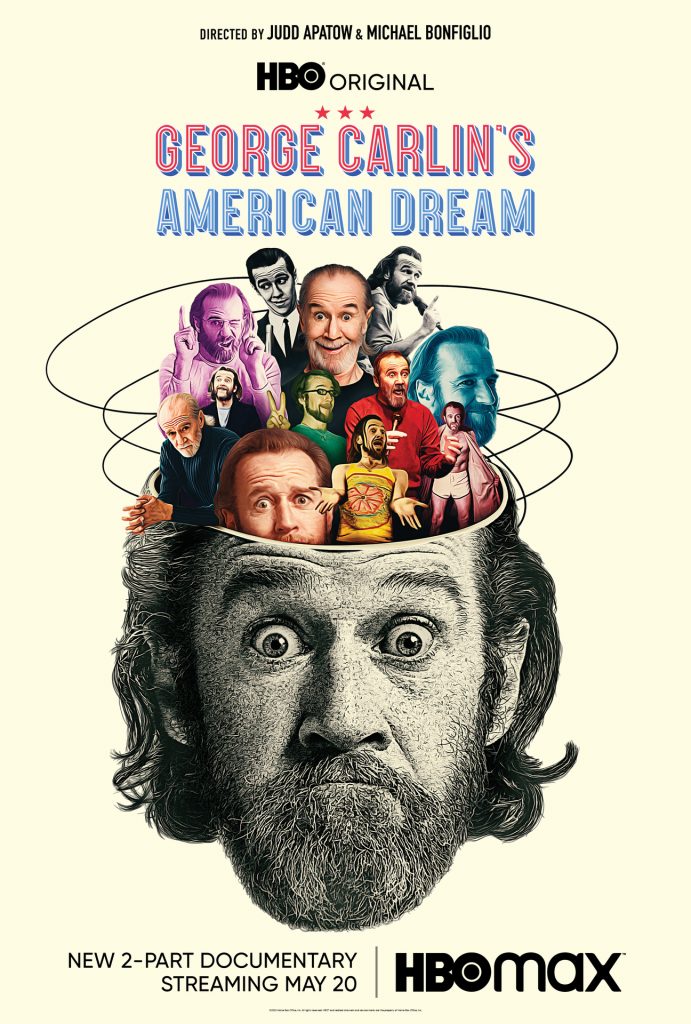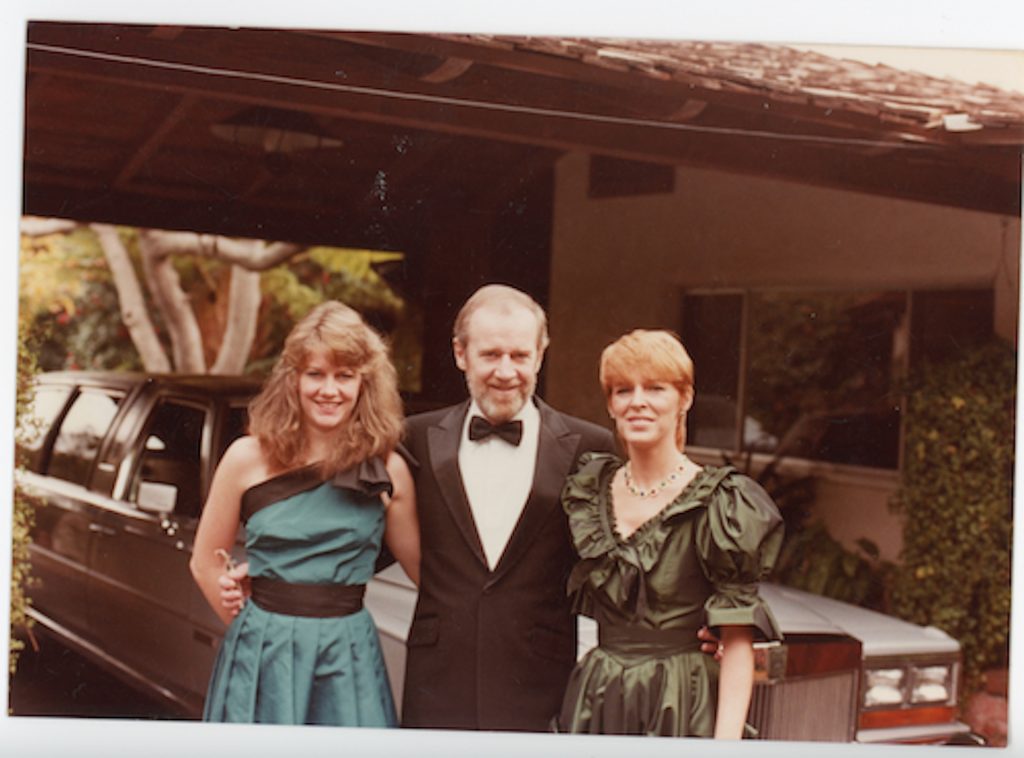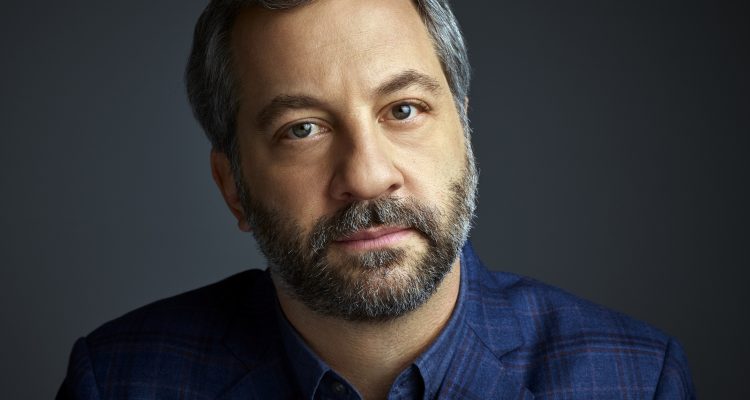When it comes to work ethic, there’s no better poster boy than Judd Apatow. The future Emmy winner started very early, spending his teenage years interviewing legendary comedians like Garry Shandling and Jerry Seinfeld.
Those adolescent interviews became part of Apatow’s best-selling book, Sick in the Head, which was published to great acclaim in 2016. Over the course of the pandemic, Apatow wrangled several news interviews for Sicker in The Head, a follow-up that has been incredibly well-received. “I knew that everyone was stuck at home, so they couldn’t say that they were busy,” Apatow jokes.
Apatow is currently promoting his phenomenal two-part HBO docuseries on comedian George Carlin, entitled George Carlin’s American Dream. The project is co-directed by Michael Bonfiglio, who handled the on-location, in-person interviews for the project.
Trailer for George Carlin’s American Dream: https://www.youtube.com/watch?v=TWCGCacySrQ&feature=emb_logo
Apatow’s prior documentary, The Zen Diaries of Garry Shandling, landed the auteur his second Emmy win. As of May 20th, both the Carlin and Shandling docs are available to stream on HBO Max.
During his promotional tour of George Carlin’s American Dream, Apatow hasn’t held back any punches. On Monday’s The Late Show with Stephen Colbert, Apatow adopted Carlin’s biting honesty as he lambasted former Trump Secretary of Defense Mark Esper.
Judd Apatow On George Carlin’s Incredible Ability To Reinvent Himself: https://www.youtube.com/watch?v=kMiL893x8ck
Apatow’s appraisal of Esper has been widely circulated and praised, much like Carlin’s own material in recent months (despite being recorded decades prior). Particularly poignant is Carlin’s 1996 comedic dissertation on abortion as the U.S. Supreme Court currently contemplates striking down Roe V. Wade.
The Emmy-winning writer-producer-director graciously sat down for a lengthy interview with Awards Focus, recounting his deep dive into George’s life, the anatomy of his comedic evolution, and how the icon predicted the future.

Awards Focus: I want to start with George’s handwritten notes, which you brilliantly disperse throughout the documentary. It’s so interesting to see the premises as they develop and his train of thought. It’s so much more intimate than hearing him speak on camera.
Judd Apatow: George Carlin loved to write more than anything. A lot of comedians like to hang out after shows, but George would go back to the room and write. He’d write on notebooks, post-it notes, envelopes… any scrap of paper in his hotel room.
George was dedicated to his process and we wanted to show that process to the audience… that’s a small glimpse into the amount of work that goes into a fifty-year career.
AF: There’s also the audiotapes when Carlin would record himself, often intoxicated, rambling, and screaming… it seemed like he was tapping into his demons. Do you feel like that was a rarity in his life or did he go off the deep end quite often? Was that spiraling a significant part of his process?
Apatow: I think it was pretty common for that time period in his life. He had a very serious cocaine addiction and a lot of his life on the road was spent alone. George would be on a binge and he did like to record himself. On one level it’s humorous but on another, it’s quite terrifying because this is a guy who’s becoming unhinged.
AF: After spending so much time watching Carlin footage, could you tell when he was a little… let’s say, “Enhanced by chemicals?”
Apatow: He said publicly that he was high almost every time that he was on TV in the early part of his career. There were performances where it felt like he was on cocaine, the Arsenio Hall appearance where George wanted to give all the golf courses to the homeless. That certainly felt aided by drugs, and that’s a hard one to watch because he gets manic and you can feel his addiction.
It felt like George was self-medicating to be able to be alone for long periods to write and be as focused as he needed to be. He struggled all his life until late in life when he went to rehab for pill addiction.
The whole ordeal was very hard on his family and this documentary is a way of showing the damage that lifestyle can cause.
AF: And yet I found the documentary very hopeful, particularly in how it captures George’s love for his wife, Brenda Carlin. When George meets Brenda early in the documentary, they marry almost instantly. But she also has demons of her own and ultimately love conquered it all.
What I wanted to touch on was how open and honest Brenda and George were about their struggles, and how you gracefully told that narrative in the same spirit.
Apatow: We were very lucky because it was so important to their daughter, Kelly Carlin, that it was totally honest. A lot of times when getting the rights for a documentary, the family wants to protect something or hide an aspect of someone, but Kelly felt that truth was the most important aspect of the documentary.
Kelly’s childhood was really tough navigating her dad’s drug addiction and her mother’s alcoholism. It’s so great that they overcame it, but this was only after many years of pain.
AF: I thought the most powerful moment from Kelly’s childhood was when she forced her parents to sit down and write out a formal agreement to keep the peace while they were on vacation. The documentary bookends that dark memory with Kelly’s reflection and then calling her dad to make peace with it.
Narratively, it felt like you found the perfect balance between exploring George’s career and investing in family life, especially coming in from Kelly’s perspective.
Apatow: The harrowing experience that Kelly went through was a major point of our narrative. It’s heartbreaking that a little girl has to write up a contract for them to stop fighting, and then she visits Hawaii years later and it’s over… we survived this, we’re all healed. And then George Carlin dies the next day.
I thought it was courageous of Kelly to be willing to share that with the world.
AF: I was also riveted by all the footage of Patrick Carlin, George’s older brother. Patrick seems just happy to be in the lawn chair and talking about his brother and his evolution. With Patrick’s passing this month, will there be an acknowledgment added to the credits?
Apatow: We’re definitely dedicating the documentary to Patrick, who was ninety years old when Michael Bonfiglio interviewed him in upstate New York. Patrick was so hilarious and filled with joy and unique insight into George.
He brings George and their early family life to light in a way that was tremendous. George would often look to Patrick as a muse, he asked him to write for his George Carlin sitcom to keep him in the game.
AF: George even had Patrick on stage with him, which went surprisingly well.
Apatow: [Laughs] Patrick’s not even an actor but George brings him onstage to play a TV reporter, and he’s quite good at it. It was a remarkable friendship and closeness their entire lives.
AF: With family home videos, there’s such a discovery to another side of George, you can even hear it in the timbre of his voice when he talks to Brenda. He wanted to make family time a priority, and yet he was working in the final days of Brenda’s life, during her quick decline.
Apatow: The documentary highlights the difficulties of life as a stand-up comedian, you have to leave home for long periods of time to make your living, and that affects a lot of people.
In George’s case, because of a few years of improperly filing taxes, he had this incredibly huge debt that was just rising and rising with interest rates. So, he had to work his way out of the hole. Later in life, he really made a point to go on vacations and indulge in family life.

AF: What do you remember most from your personal interactions with George?
Apatow: At twenty-one, I interviewed George Carlin for Canadian television and he was very kind during the chat. I would go see his shows where he’d be trying out new material, either at Igby’s or the Comedy and Magic Club. Because he wasn’t a hang-out guy, there wasn’t a chance to get close or be friends.
I remember one show in West LA at Igby’s where he said, “They say you’re not supposed to talk about blank (insert dark subject matter)…. Well, let’s give it a try!” George would do ten minutes on the taboo subject.
He always wanted to find the line the audience wouldn’t cross, then take them across it, and make the audience glad they took that trip with him.
AF: What I really appreciated was that the documentary doesn’t rely on interviews from people who peripherally knew George… there are nice moments with Chris Rock and Jerry Seinfeld, but the people telling George’s story are George himself and of course Kelly Carlin.
Apatow: We were really lucky to locate these George Carlin interviews with Tony Hendra when they were working on George’s autobiography, Last Words. George spoke very casually on tape and the total material amounted to be over twenty-three hours. The honesty on display… when we found that, we knew it would be the spine of the documentary.
AF: It seems like everyone has their own relationship with some aspect of George Carlin, but this documentary really acquaints us with the “Whole George” for the first time. Was it always the plan to tell Carlin’s story in two parts, or was that discovered once you began the process?
Apatow: When someone has a fifty-year career, it can’t really be done in one part. The best documentaries, in my opinion, are the ones that delve into both the creativity of the person and the person’s emotional narrative.
I really despise the documentaries that quickly cut between the creative bits of someone, that’s the worst approach in my opinion. Whether someone is acting or doing stand-up, those scenes need to play out longer so that the viewers can get an even greater context and truly understand the person’s work.
We knew that part one would end with the Supreme Court’s decision on “The Seven Words You Can’t Say on TV.” Picking up from there, we knew the second part would be darker, more political, dialing in on the fact that George was feeling that the world — and America — had lost a great opportunity to care for the planet and each other.
AF: When George would go dark and angry in his material, it was hotly debated if he was truly feeling that way or doing it as a performance for effect. How do you personally feel about his outlook?
Apatow: He said, “Scratch any cynic and you’ll find a disappointed idealist.” I think that’s the real takeaway, he was a guy with a lot of love in his heart.
AF: Speaking of love, there’s no truer sign of love than when Brenda [his wife] comes on stage to tell him to dump his drugs because he’s going to be arrested as soon as he leaves the stage at a festival performance. The fact that you found that audio is just astounding.
Apatow: When you start a documentary you try to hunt down everything that was ever recorded. Audio, newspaper, headlines, you name it. The funny thing about that story is that George Carlin was arrested for causing a public disturbance.
When it came time for George to be charged in court, someone from the county attorney’s office admitted to being at George’s performance and the assistant prosecutor admitted that it was quite the opposite and that George Carlin got a standing ovation. It was at that point that they dropped the case.
AF: Outside of the entertainment value that George Carlin undoubtedly provides, what do you hope people will take away from this unsung hero of truth?
Apatow: In the political arena, I think a lot of his ideas are worth further discussion and specifically, reducing the way everyone is manipulated by this system. He definitely wanted to empower and educate. George’s big piece was on the American Dream, and the tagline was, “It’s called that because you have to be asleep to believe it.” We get the politicians that we put in office, and so we need to be vigilant.
You could point to his work on environmentalism and maintaining the planet, but even more simple than that is this story of a family who’s going through a lot, marital issues, the stress of raising a child while pursuing a dream… and finally finding a way to heal and get over the traumas that they faced.


